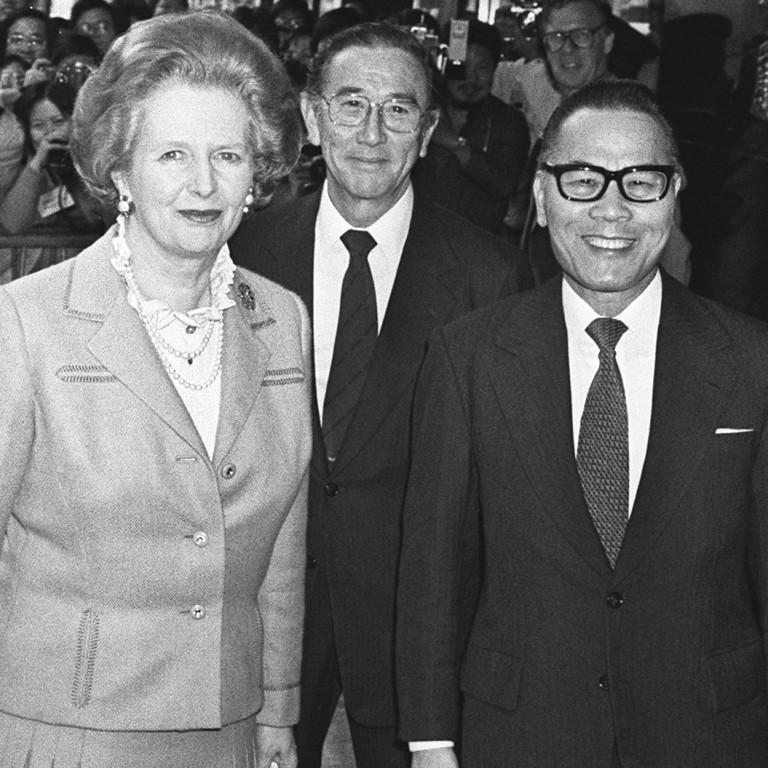
‘Godfather of Hong Kong politics’ Chung Sze-yuen once described by top British adviser as ‘not reliable’
- Archives show aide to Margaret Thatcher was wary of Exco member and blamed him for near disasters in handover negotiations with China
- Chung’s supporters however say he was Hong Kong’s champion and bowed to neither London nor Beijing
He may have been the “godfather of Hong Kong politics”, but the late Chung Sze-yuen was once described by a top British government adviser as “not reliable” in his judgment of the central government during negotiations for the city’s return to Chinese rule, latest declassified records show.
The files, released by the British National Archives two weeks ago, reveal the harsh appraisal of Chung by Percy Cradock, a trusted foreign policy adviser of then prime minister Margaret Thatcher.
Chung was at the time the only senior member of Hong Kong’s Executive Council, the city’s top policymaking body in the colonial era.
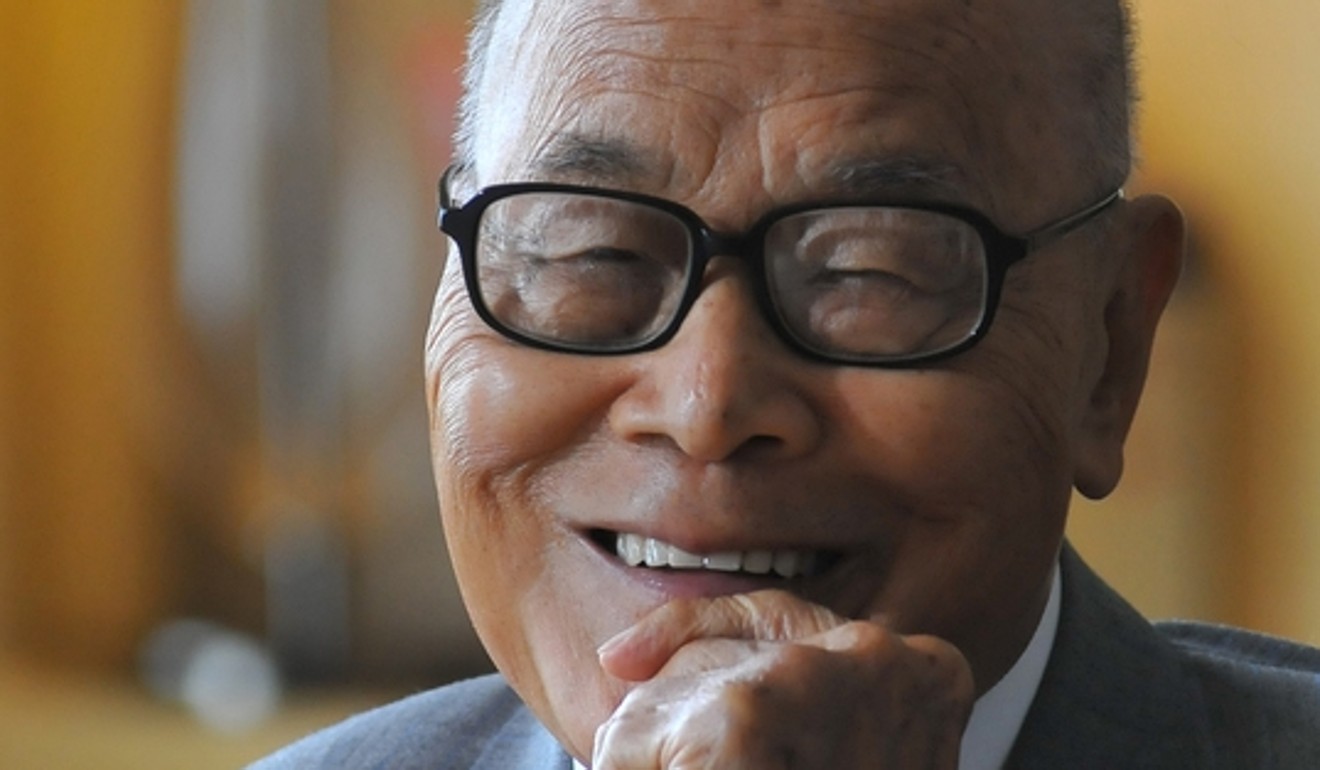
The files also shed light on the tricky exercise of selecting a governor for the colony, which had to take into account locals’ anxiety, dealings with China and business interests.
Vigil and funeral arrangements announced for late ‘godfather of Hong Kong politics’
In the letter, the pair suggested that the most important quality for Hong Kong’s next governor, when it came to navigating talks with China, would be political sensitivity – beyond even experience.
But this piece of advice was seen by Thatcher’s foreign policy point man as “a dangerous recipe” for facing China.
“S Y Cheung [sic] is an old comrade-in-arms, for whom we all have respect,” Cradock wrote to Thatcher, misspelling Chung’s surname throughout the note. “But his judgment of the Chinese is not reliable.
“Repeatedly during the negotiations he had to be restrained from what could have been a fatal confrontation with the Chinese,” Cradock said, adding that many plans had to be pushed through “in the face of tough opposition” from Chung’s side, to secure the handover agreement with China.
Chung Sze-yuen, voice of Hongkongers in colonial corridors of power
These include the decision to accept Deng Xiaoping’s deadline and go for a final agreement – the Sino-British Joint Declaration – in 1984.
Cradock also warned Thatcher that Chung “was shaping up for a new confrontation next year over [talks on] direct elections”.
“He and Lydia Dunn have spoken emotionally, and incorrectly, about direct elections as the cause for which Teddy Youde died,” he said. “He will require very careful handling.”
The next governor, Cradock said, should be keenly aware of opinion in Hong Kong and of the realities of the situation and the Chinese dimension, lest he be “particularly susceptible to S Y Cheung’s pressure” and be led into “a dangerous situation”.
The note was seen by the prime minister, her private secretary for foreign affairs Charles Powell confirmed in writing.
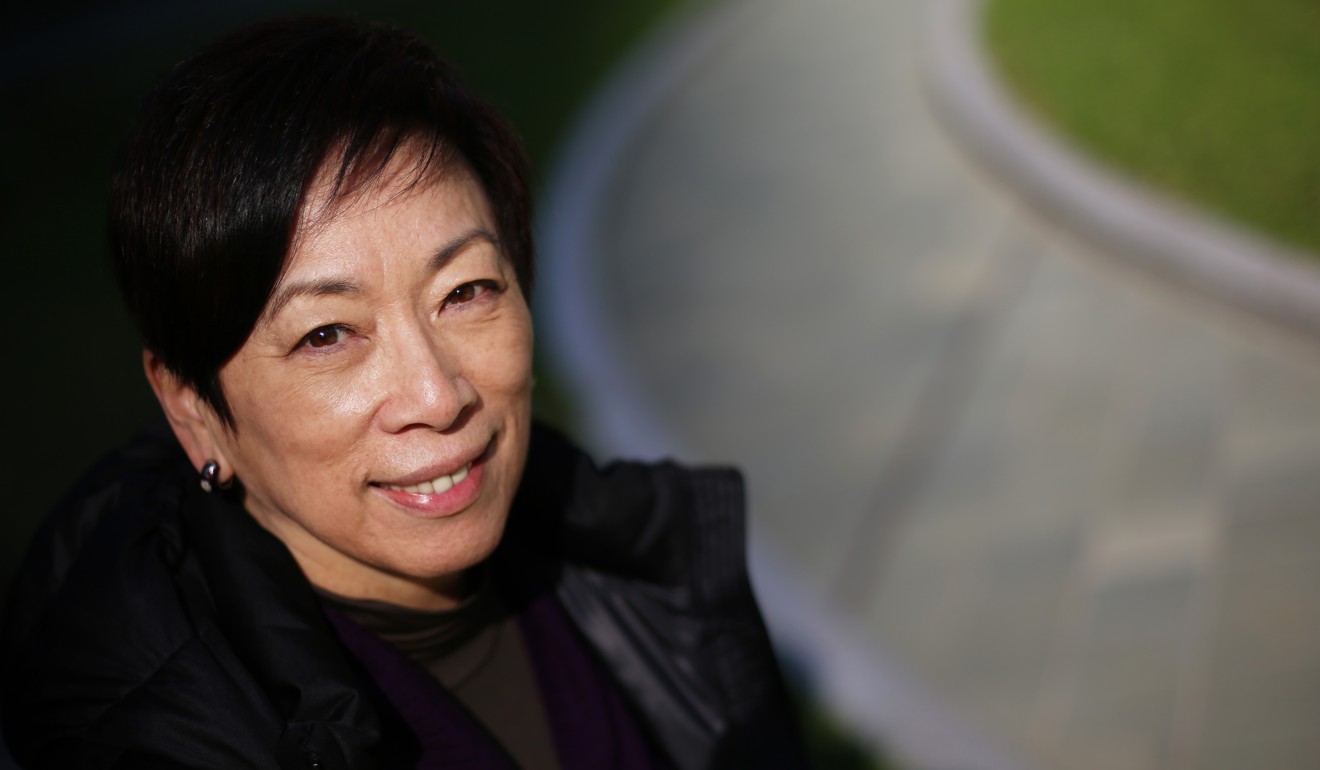
Selina Chow Liang Shuk-yee, a Hong Kong lawmaker at the time, said the declassified record “fully vindicated Sir SY Chung as the guardian of the interest and wishes of Hong Kong people” during the Sino-British negotiation, although he was a cabinet adviser appointed by the colonial government.
“It was clear that Sir Percy Cradock was more concerned about diplomatic goodwill for his country than standing up for the best deal for Hong Kong,” she noted.
It was clear that Sir Percy Cradock was more concerned about diplomatic goodwill for his country than standing up for the best deal for Hong Kong
“It is evident from this record that both Sir SY and Dame Lydia Dunn were speaking boldly on behalf of Hong Kong, and this was seen as posing an inconvenience to the British government.”
In his 2001 memoir, Chung recalled he often felt he was distrusted by both London and Beijing.
One of his toughest moments came in 1984, when he met Deng Xiaoping in Beijing and frankly told him that Hongkongers were worried that the city would actually be governed from Beijing rather than enjoying a high degree of autonomy after 1997.
The patriarch dismissed his view and said it was only Chung who had no confidence in China.
A month after his trip, Chung proposed a referendum in Hong Kong to test acceptance towards the joint declaration, only to be rejected by Youde.
Apart from political sensitivity, Chung and Dunn also suggested to Thatcher that the next governor should be of a senior enough rank and status to command respect in China and Britain.
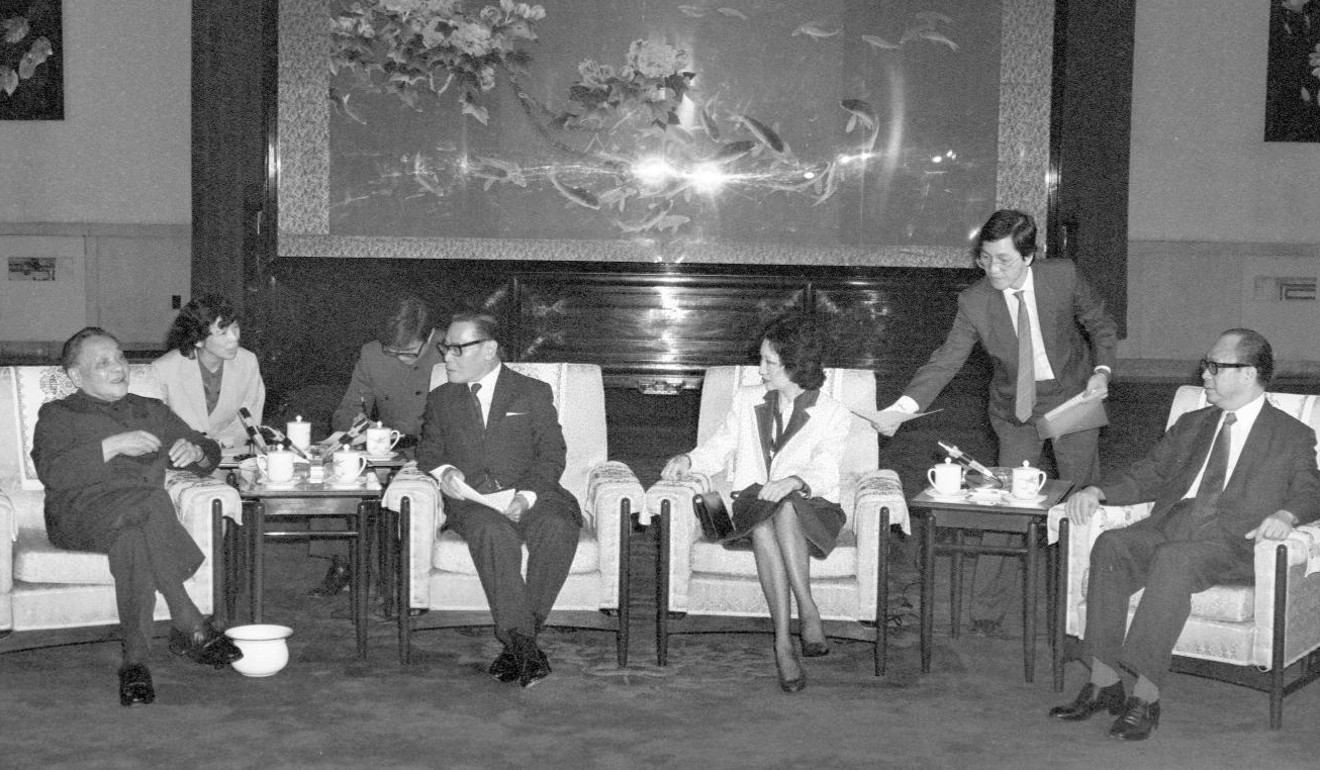
They hankered after Lord Carrington, who resigned as foreign secretary in 1982 after the Falkland Islands were invaded by Argentina, according to a note from the foreign office. Carrington had served in the second world war and joined Winston Churchill’s government in 1951.
British Foreign Office was told to assess risk of Chinese takeover before 1997
The selection exercise proved tricky in London as officials went through a list of names. Anthony Galsworthy, private secretary to then foreign secretary Geoffrey Howe, wrote to No 10 Downing Street.
He warned that the appointment of any person who had some experience in the region would “all too often turn out to be associated with one or another business faction in Hong Kong” and would “cause an outcry from the rival factions”.
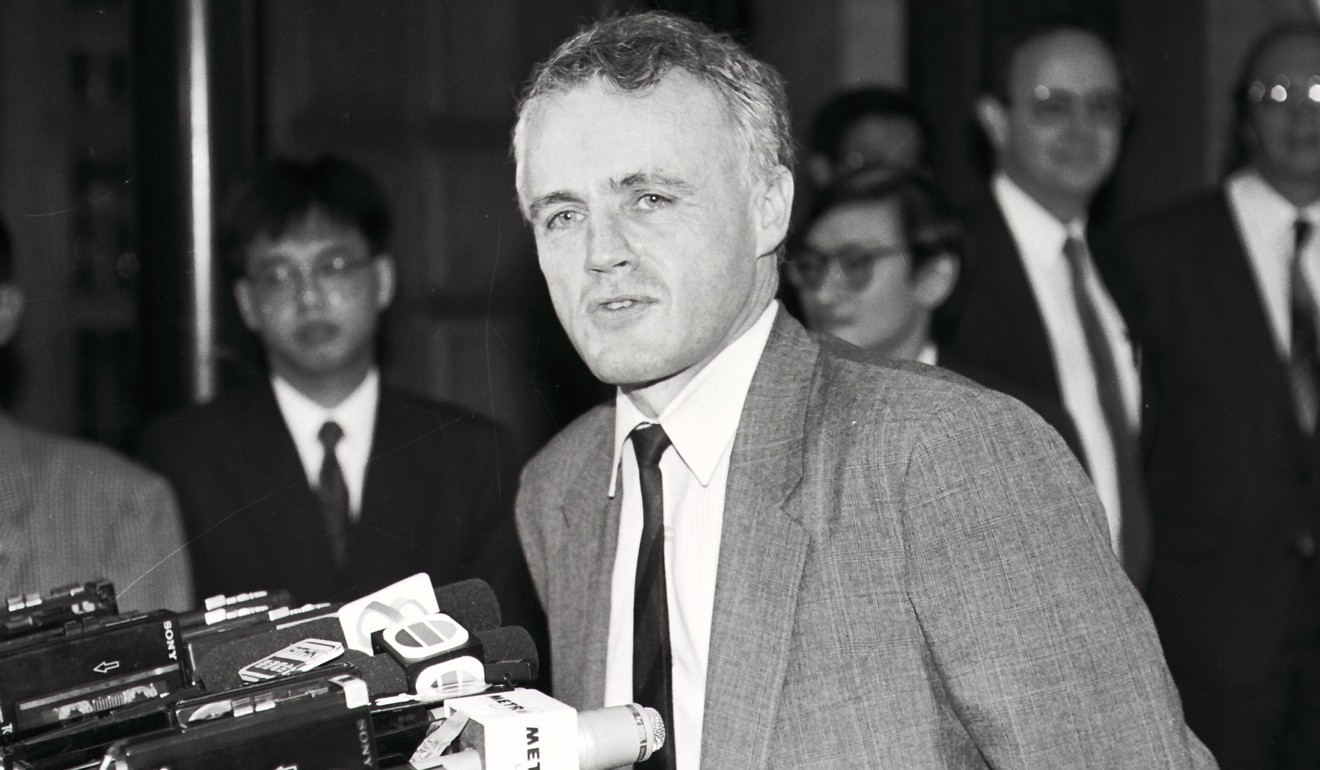
They named Sir Adrian Swire, then director of John Swire & Sons, and Lord Barber, then chairman of Standard Chartered Bank, as examples. The appointment of the latter might be taken by the Hong Kong and Shanghai Bank “pretty badly”, Galsworthy noted.
He also advised against choosing candidates from the House of Lords – the upper house of the British parliament – noting that the job of Hong Kong governor was “very arduous” and required a fit man.
Thatcher’s 1982 Hong Kong visit revealed little about colony’s return to Chinese rule
Harry Fang Sin-yang, a prominent surgeon, Hong Kong Exco member and lawmaker, and uncle of former Hong Kong chief secretary Anson Chan Fang On-sang, was nominated by a Scottish peer named John Scot to Thatcher in a personal note.
In the end, Thatcher settled on David Wilson, a career diplomat known as an “old China hand” in the foreign office, a choice welcomed by Chung and Dunn.



